Orcs of the Office
I've found a new hobby: generating humorous Magic the Gathering cards by using generative tools like midjourney. It started when I saw this project on a Slack channel when I started toying around myself. It's been a bunch of fun making the cards, so I'll start by sharing them before discussing some lessons learned along the way.
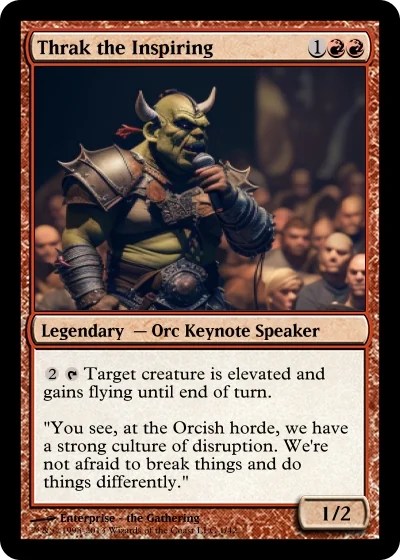
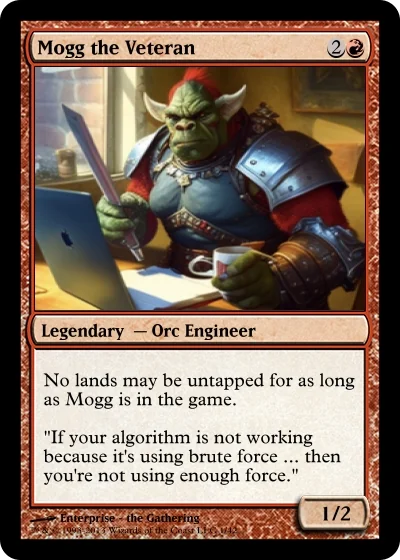
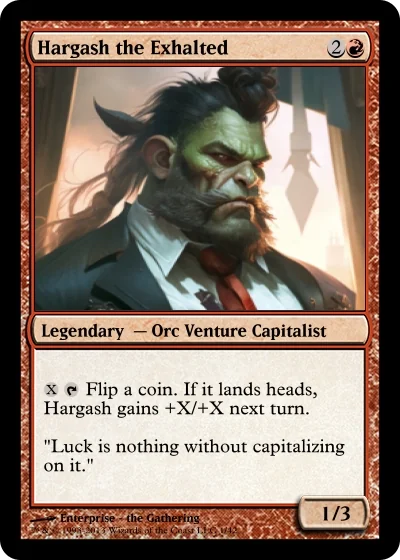
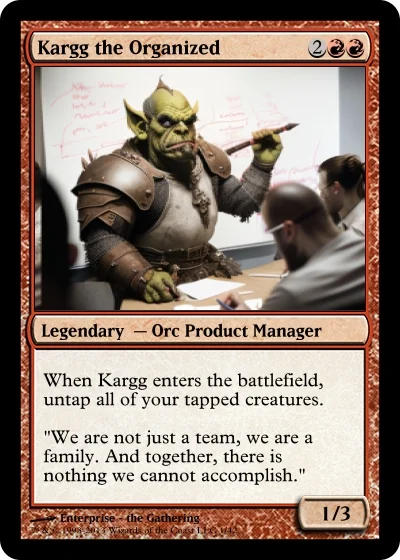
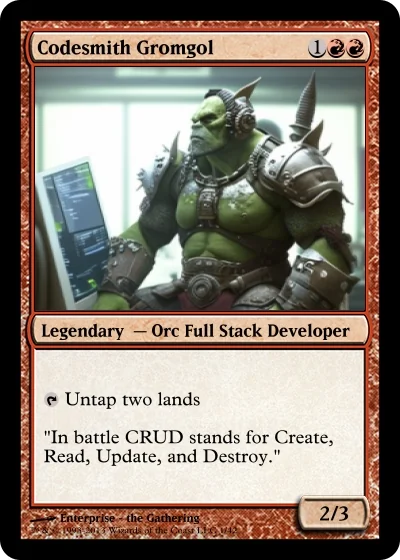
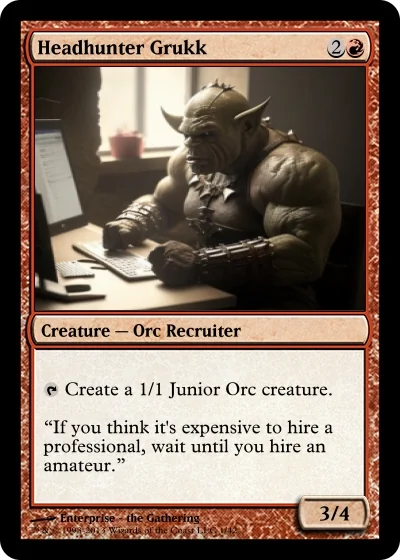
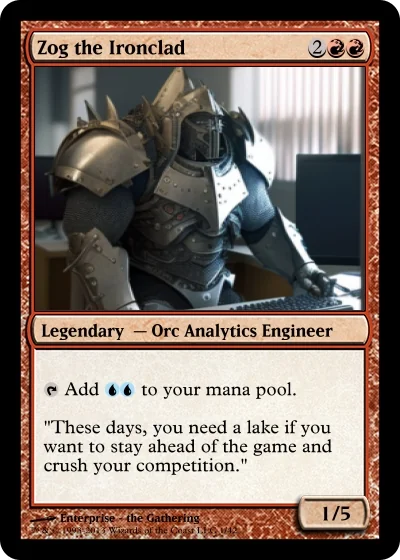
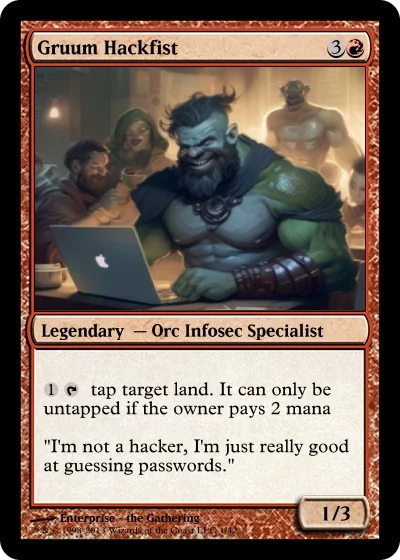
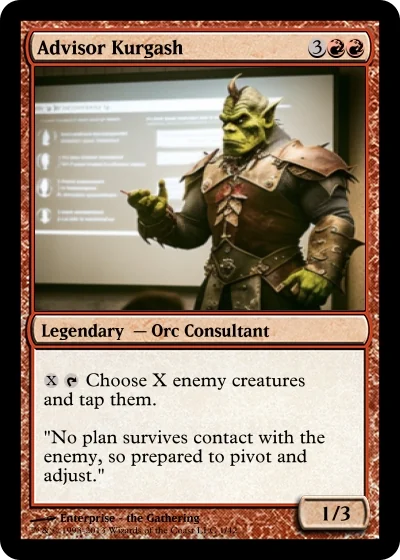
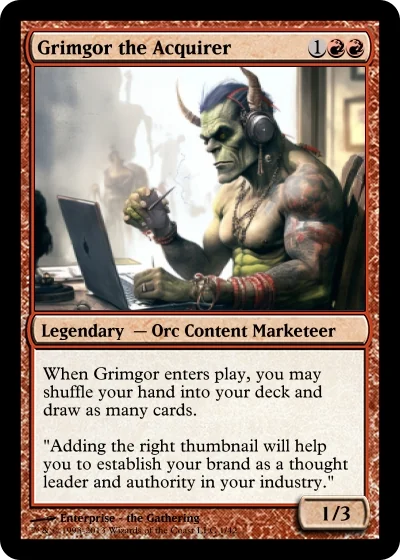
I'm pretty happy how these turned out, but let's talk a bit more on how these got created.
How it's made
All of these cards were made by leveraging mtgcardmaker. This site allows you to upload your own image and will handle everything else. It makes high resolution images with all the icons, like mana colors, on the cards themselves.
So let's have a look at the main things that need to be generated for each card.
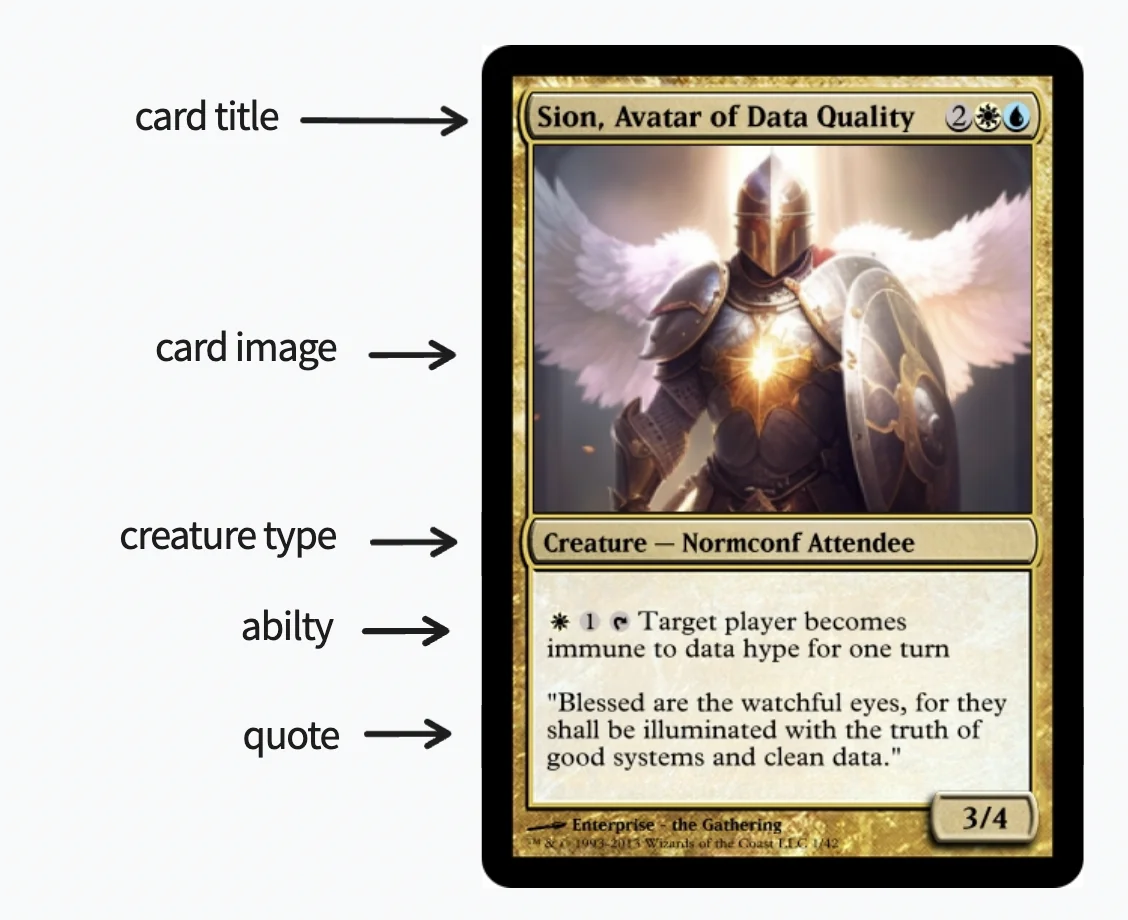
Let's go over these quickly.
- The card titles were mostly generated by asking ChatGPT to generate names. Half the time it would generate interesting examples, but other times it was easier to do by hand. I remember asking for an "Orc VC name" and it would generate "Hargash Coinmaul", which is pretty funny, but too much on the nose. I ended up going with "Hargash the Exhalted" instead, because it sounds more like an actual epic hero from that realm.
- The card images have all been generated by midjourney. Generating images that were useful was a small challenge but I was also impressed by the results that I was able to generate.
- The creature type is something that I would always write by hand, it was typically part of the prompt that generated the card title. These are mostly based on stereotypes found in tech or in enterprise IT.
- The ability was also something that was much easier to generate by hand than via ChatGPT. It was very easy to have it generate ability names, but it was very hard to have it generate something humerous that was related to the stereotype that I had in mind.
- The quote for each card was typically generated by looking for quotes on Google and drawing inspiration from those. I tried ChatGPT, but it took too long to get satisfying quotes.
Out of all of these, generating the image was usually the hardest and most time consuming part.
Generating Images
I used midjourney, which is a serice that runs via discord. The experience of typing a prompt and getting back a reasonable image is impressive but there are many awkward moments where the system is having a fair bit of trouble.
Taking things literally
One issue is that sometimes what you type is taken literally.
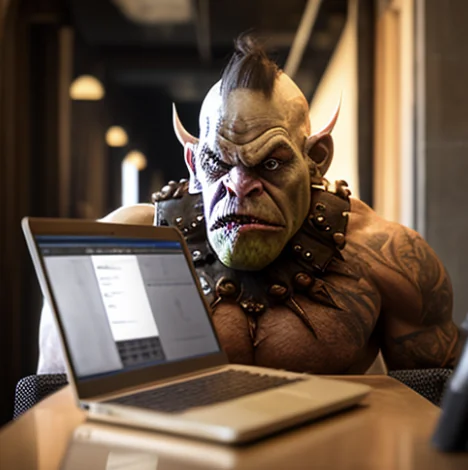

Both of these images were generated with the "magic the gathering card of an orc behind a laptop" prompt. And yeah, they are both "behind" a laptop but I'd argue the first image is taking that too literally. It's an effect that I've seen with many tech devices.
Female Characters
Initially I tried generating some female characters but I found it hard to generate these without ending up with unwanted focus on cleavage. Here are the results for the prompt "smiling orc woman wearing a professional outfit hacking on a macbook pro coffee surrounded by impressed colleagues":
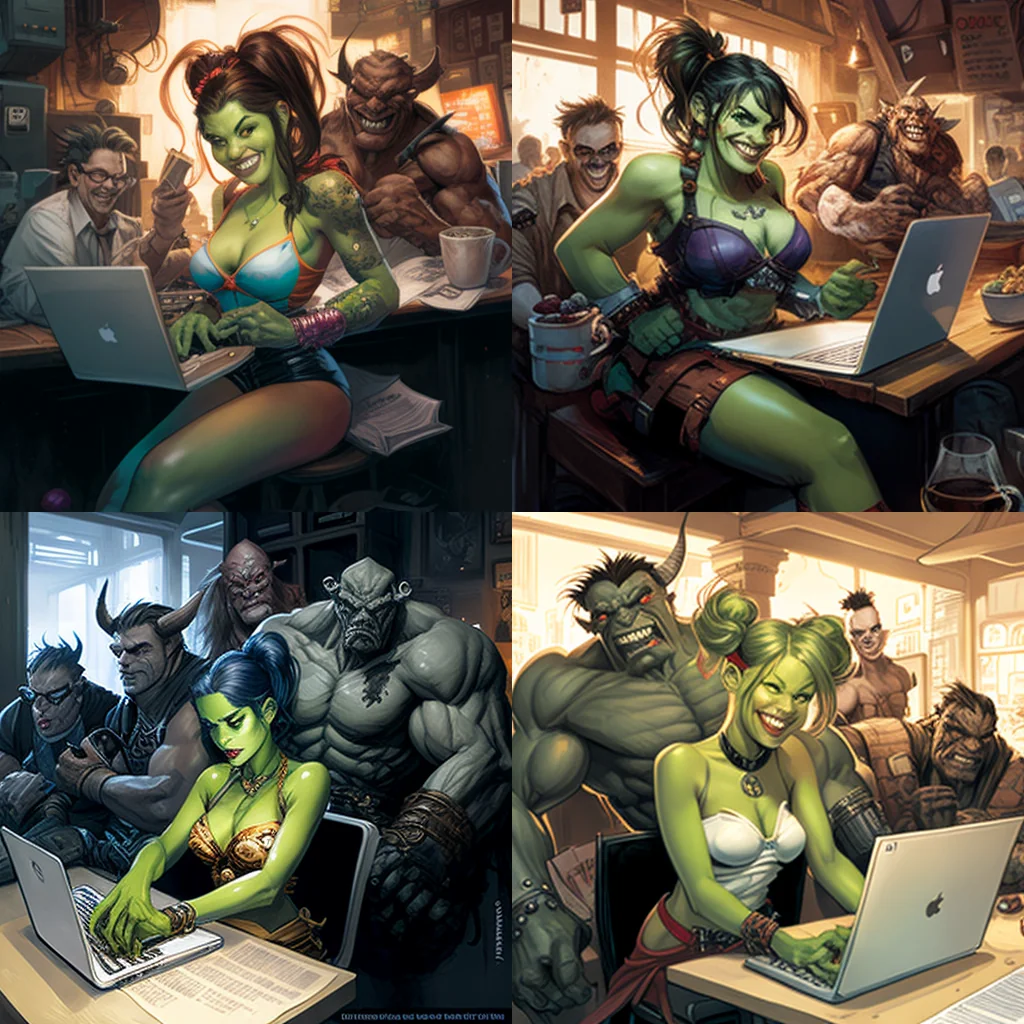
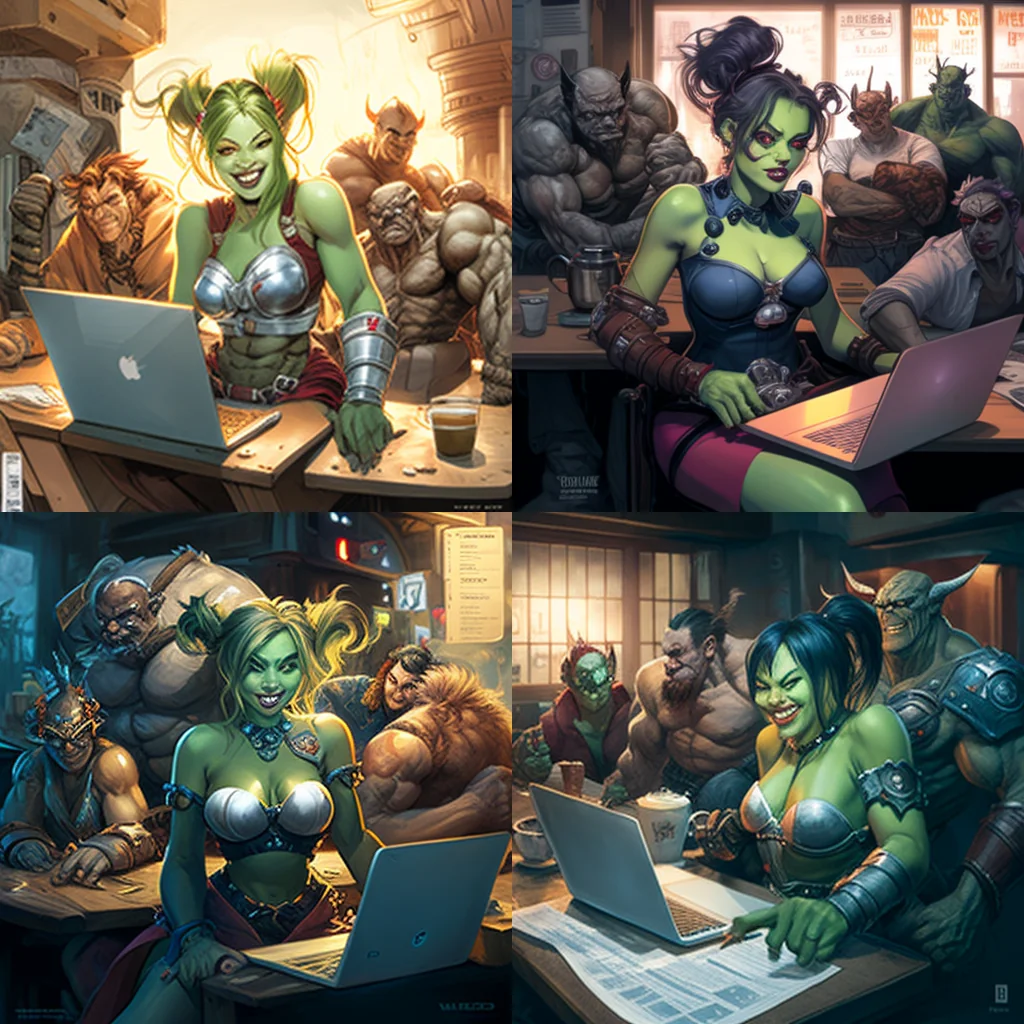
In a way this isn't suprising when you think about the data this system might be trained on (gaming fan art I imagine), but this really isn't what I'm interested in. I don't want playboy vibes in these cards and it's especially a wrong turn with all the shirtless male orcs in the background.
Midjourney has some protective measures so that you can't generate nudity. This is a good thing and it's also why words like "cleavage" are blocked. The only downside of these blocking terms is that you also cannot use them as a filter anymore. Midjourney allows you to pass a flag (via --no) that allows to to steer the produced image away from what you're not interested in. But you're not allowed to use forbidden words here, which means that you cannot use this feature to reduce the cleavage.
Missing the point
At times, Midjourney misses the point of what I'm trying to generate.
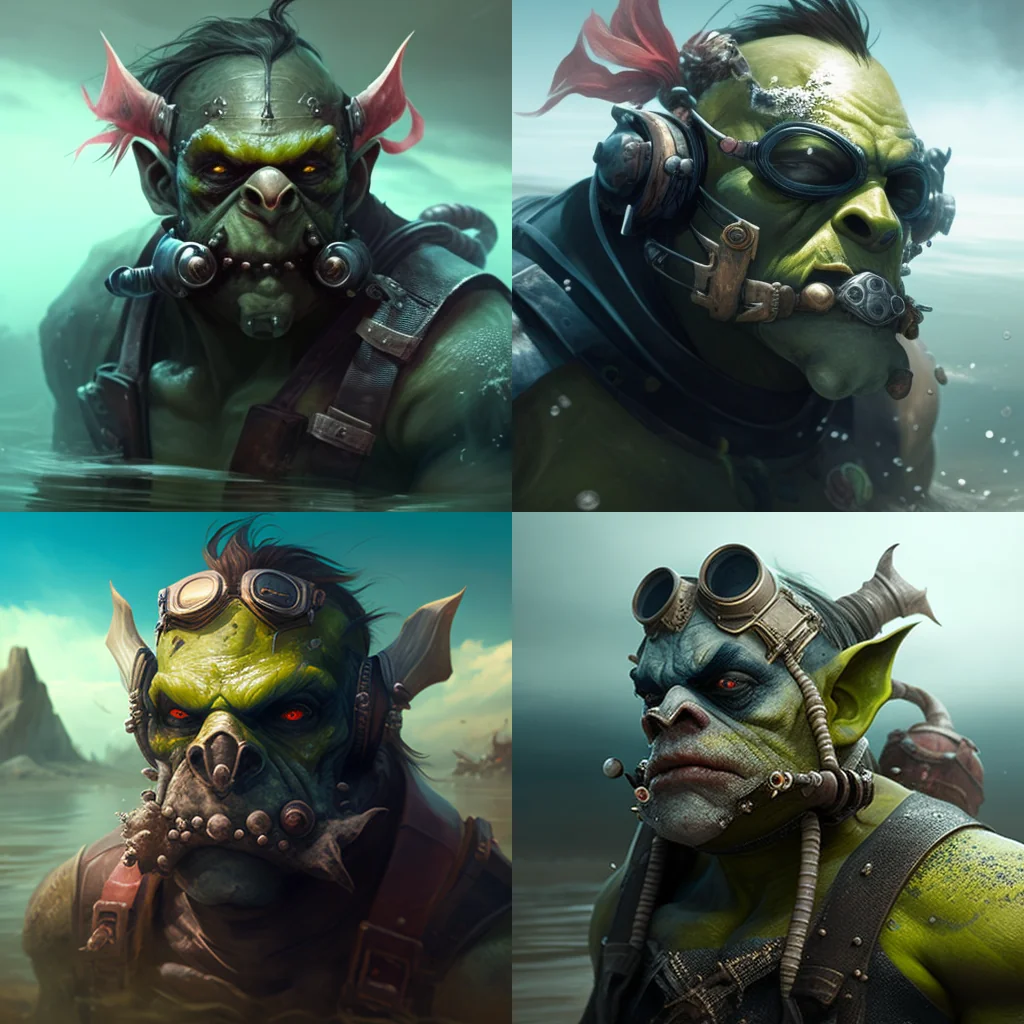
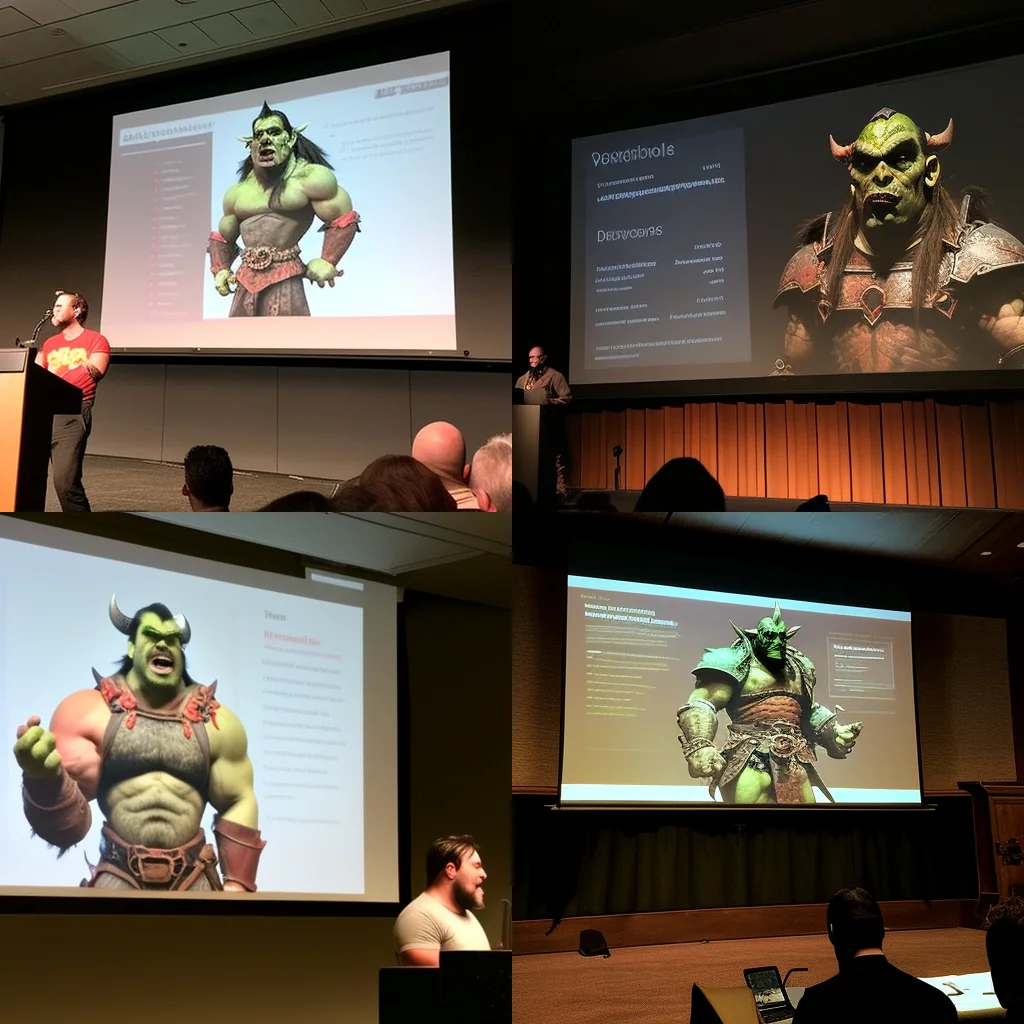
In the first prompt "Orc with a snorkel", it's generating a scooba outfit, not a snorkel. In the second prompt "An Orc giving a keynote at PyData" the orc becomes the topic on the slide, not the presenter.
I guess that it's hard for the system to understand what I'm going for sometimes, but it also feels like combining styles from completely different realms is something Midjourney still has a lot of trouble with.
It's a shame too. I think an ironclad orc wearing a snorkel behind a laptop would be super super funny.
Long, often awkward, Prompts
Here's an example of a prompt you might give to Midjourney.
high elf wizard giving presentation in boardroom full of executives
Here's another one.
stunning high elf wizard giving amazing presentation in boardroom full of executives 8k cinematic dungeons and dragons magic the gathering
Welcome to the realm of prompt engineering. It's not immediately clear which prompt gives the best image, but you can try to steer by just adding more words. A popular choice of terms is to add artist names, franchise names, rendering settings and medium descriptios.
I didn't come up with this prompt myself, but here's an example of "additional prompt" that I was used in the community.
overwatch, intricate, highly detailed, digital painting, hyperrealistic, artstation, concept art, smooth, sharp focus, illustration, 8K, art by artgerm and greg rutkowski and alphonse mucha, jesper ejsin
One problematic thing about this prompt is that it's not really clear what you could really do to influence the generated image. Another, more existential, issue is that it seems like one of the best steering methods is to use an artists name. You can clearly see why this makes the artists in question unhappy. There's a good conversation to be had about AI art and copyright and I can certainly see why every visual professional out there is worried that their portfolio can be used to make some of their future work obsolete.
To quote the linked article:
Rutkowski says he doesn’t blame people who use his name as a prompt. For them, “it’s a cool experiment,” he says. “But for me and many other artists, it’s starting to look like a threat to our careers.”
What makes a card Funny?
Here are some other cards that I've generated that seem pretty funny to me.
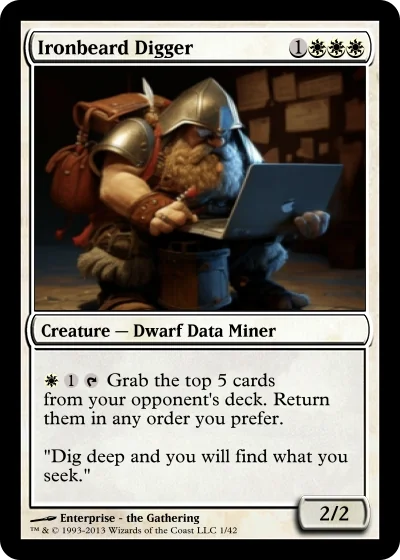
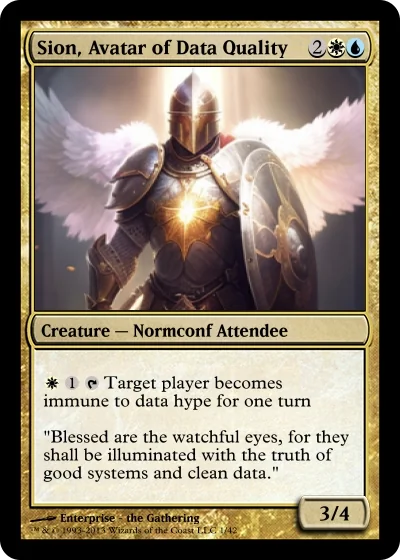
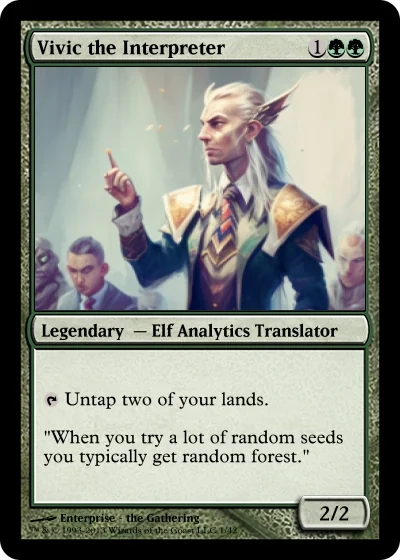
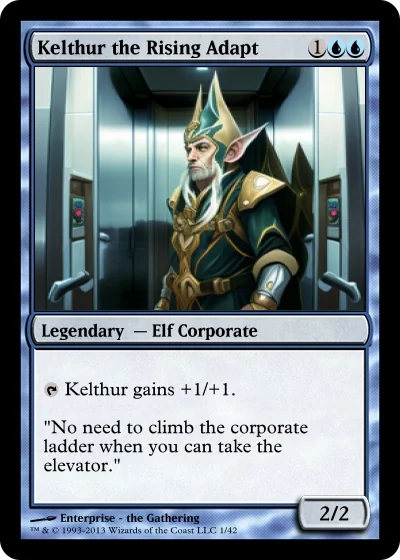
But here's an interesting thought experiment. Imagine that we'd generate some "elves of the enterprise" or "consultancy dwarves" instead of "orcs of the office". Would it still work?
I'm not 100% sure. There really is something funny about orcs in the office. Orcs carry a stereotype which makes them very unlike stereotypes you'd expect from a corporate office. This is a big part of the humor and it would be a lot harder to come up with 10 dwarven cards that each carry a distinct joke. There's only so many data miner jokes you can pull off with a dwarf carrying a laptop.
I might explore an elven card set though. I can imagine that you could come up with elves with the most rediculous wizard outfits that would also stand out in corporate settings. The elf in the elevator is pretty funny because of this, and I can see how you might repeat that in a few original ways. An epic sorceror waiting by the copy-machine, a dark elf warlock working on an excel spreadsheet or a hipster wood elf exploring a "bear" market might all be funny cards that end up working.
Conclusion
Midjourney and ChatGPT make it a lot easier to generate funny Magic the Gathering cards. But these tools are nowhere near generating proper end-to-end humor just yet. These generative tools can help you get the right lego bricks, but you still need a human around to click them together.
I generated some amazing images, but only a fraction of all generated images were fit for use in a Magic the Gathering card. It was also clear that there are limitations in text generation when it comes to generating the quotes and abilities. ChatGPT is really good at coming up with orc names, but the moment you ask it to generate abilities it just overfits on abilities you might read on any Magic the Gathering card. So I ended up just googling for abilities manually and making up variants myself.
I'll be toying around some more with these tools. While it still doesn't solve everything end-to-end, it does feel like these tools are at a point now where they are plausibly useful. Even fun.